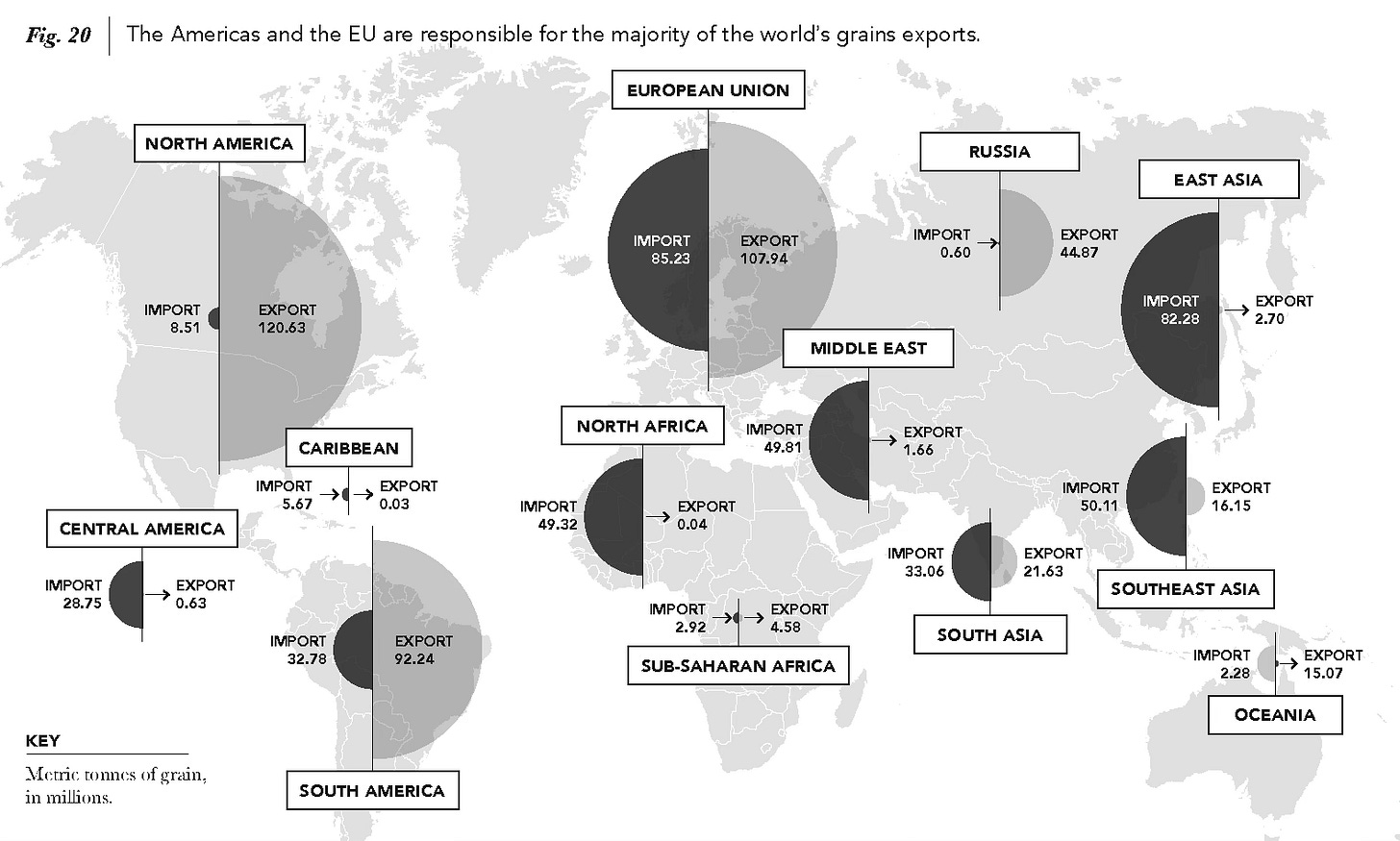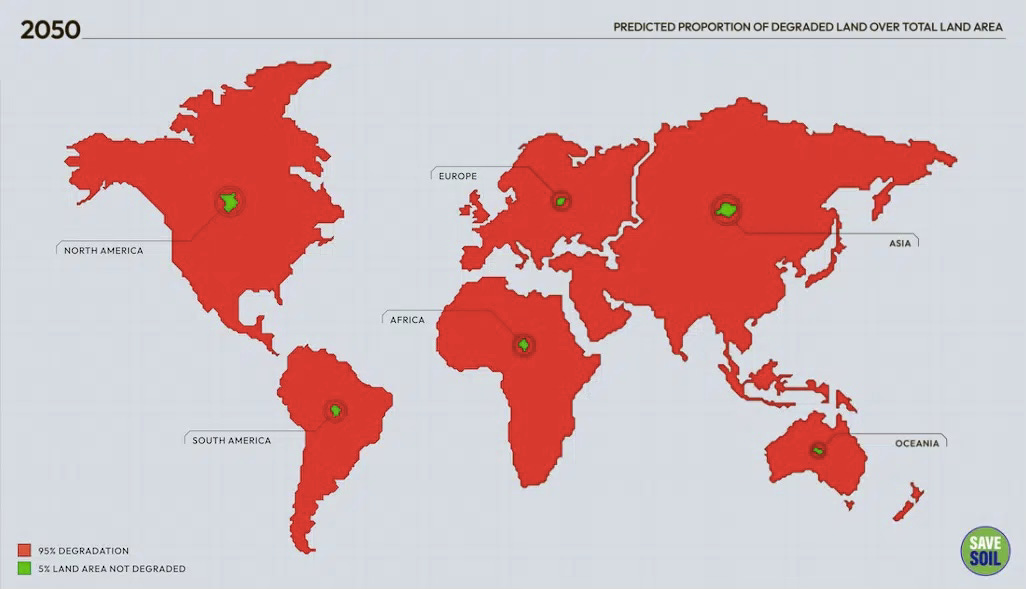
1) This shit is getting real
WIRED: Banks Are Finally Realizing What Climate Change Will Do to Housing
The subtitle scopes the resulting problem:
Extreme weather threatens the investment value of many properties, but financing for climate mitigation efforts are only just getting going.
I often talk about economics getting ahead of politics, and technology getting ahead of security. When those gaps get big enough, some crisis comes along to reset that ruleset, bringing the two more in line with one another. In the former, that’s mostly legislation (most legislation can be tracked back to an instigating disaster); in the latter pairing, it’s usually a response from the military industrial complex and/or military to address the resulting threat gap with new capabilities, new tactics, and/or just taking that bad actor down (USA! USA!).
Now, with climate change, I feel like I can speak of the environment racing ahead of … just about everything right now, with insurance being an early alarm bell.
Big money is finally waking up to the fact that climate change is a gigantic problem. Property is the world’s greatest store of wealth, with a total value just shy of $380 trillion. This is four times global GDP. But there’s a new kind of toxic asset emerging in property portfolios. The number of homes in what you might call “subprime” locations is rising and, in some parts of the world, property value—like a crumbing coastline—is at risk of erosion. Lenders are getting noticeably more reluctant to lend against these assets. No wonder. In the Asia-Pacific region, nearly one in 10 properties owned by real estate investment trusts could be at “high risk” of climate-change-related damage—particularly those on seafronts, a report from climate risk consultancy XDI announced in May.
Makes you wonder how DeSantis is going to scrub this emerging reality from all legislation passed in Florida, right?
Remember: adapt, move, or die.
Death doesn’t really apply to people here (few actually die in weather disasters) but to towns that will be hollowed out of people and eventually put to the water (our era’s version of being “put to the torch”).
So, for people, it’s mostly adapt (paying a whole lot more money) or move on out.
Talk about moral hazard:
And yet, plenty of people are still buying US coastal properties, for instance—and paying ever bigger sums for the pleasure. This fuels the common climate-change-denier claim that because “all the billionaires” are still buying coastal properties, climate change must be a hoax. As if, for some people, “billionaire” somehow equates to “prophet” rather than simply “presently wealthy person.”
Love that bit: money doesn’t exactly = smart. I watched Succession!
Here’s where the learning really occurs:
“As the damages pile up, it could well be that the markets will become more efficient and the incentives [to harden properties] become stronger—because nobody’s bailing you out anymore,” says Ralf Toumi at Imperial College London, who consults for insurance firms.
As for incentives, the word is “retrofit,” meaning all sorts of improvements you may feel greatly compelled to make to render your house more resilient and efficient — otherwise, pay the same extra money to your insurance company and hope they stand by you, like a good neighbor and whatnot.
This is a great example of why I am confident about things turning out the way I describe them. People often ask: But how will you/we get people to change their thinking?
The answer never changes. I and mine don’t change anybody’s mind. Altered circumstances (like home insurance) change their minds.
My job is just to be there when their minds finally open up and are looking for mental models for the tasks and uncertainties lying ahead.
Doing that after 9/11 was easy — actually too easy.
This time around, we’re unlikely to get that ONE GREAT CRYSTALIZING EVENT, so patience and persistence are called for.
Then again, you never know.
2) As if the US Postal Service doesn’t have enough to worry about
MILITARY TIMES: Chinese military’s rifle-toting robot dogs raise concerns in Congress
I’m telling you: one of those Chinese dogs takes a dump (dead battery?) on my front yard and I’m not doing anything.
Apparently the Chinese military have circulated some video, suggesting that the sort of robot dog presently envisioned for rescue and recon activities has been fitted with a machine-gun … sort of head.
If the Chinese have robot rifle dogs, then we must have them too.
I don’t know if this is good or bad news for military dogs. I assume the former.
But it’s just another sign of the Military Singularity in which the battlespace goes almost completely post-human.
We have the Robot Olympics, do we not?
I saw it on Futurama when Bender won a ton of medals.
Go Bender! Go Bender!
And no, I’m not even touching the whole pretending-to-be-a-fembot scandal.
3) Rare Earths are not rare when you really search for them
YAHOO!: Huge Rare Earths Discovery is Gamechanger in Americas Trade War with China
As soon as I hear about some mineral that is going to rule humanity’s future and it only can be found in X, Y, Z — thus we better freak out pronto! — I just have to laugh. Because within a decade or so of those scary headlines, one encounters new ones about how prospectors have just located all these big-time reserves, usually with one conveniently located in the US, like the great lithium find in Nevada (coupled with the fracking wastewater reclamation breakthrough just announced).
So, of course, rare earths will constitute the great supply-power of this century … and China has the biggest reserves (bit over a third of global reserves) …
So China rules all, am I right?
Until some new reserves are discovered and production set in motion.
Now we are told Norway (always the lucky bastards on minerals, it is the one country I would escape to) has just located a major-league reserve, while others have found a mega-reserve in Greenland (Trump SHOULD have bought it!) in the range of 28MT, or right up there with China.
Expect more such headlines, and chalk it up to capitalism — as in, You tell it’s suddenly that much more valuable and I will go find it!
Meanwhile, be sure to read up on the blistering poli-sci genre known as “resource wars.” I mean, we can still hope.
4) No direct flights for you!
REUTERS: India shuns China's calls to resume passenger flights after 4 years, officials say
India keeps refusing China’s request to re-establish direct flights between the two.
China is pressing India to restart direct passenger flights after a four-year halt, but New Delhi is resisting as a border dispute continues to weigh on ties between the world's two most populous countries, officials said.
India-China relations have been tense since the biggest military confrontation in decades on their disputed Himalayan border killed 20 Indian and at least four Chinese soldiers in June 2020. Thousands of troops remain mobilised on each side.
I think New Delhi is smart to remain firm on this subject. China’s fortunes have peaked while India’s are far from cresting. Then there’s the wider-world payback for China putting all sorts of stupid restrictions and conditions on outside firms investing there in the past. Compared to all of those, India’s request that the border dispute get put to bed is entirely reasonable.
Since the clash, India has made it difficult for Chinese companies to invest, banned hundreds of popular apps and severed passenger routes, although direct cargo flights still operate between the Asian giants.
Direct flights would benefit both economies, but the stakes are higher for China, where a recovery in overseas travel after the COVID-19 pandemic is lagging, while India's aviation sector booms.
Trust me, the potential economic payoff will eventually get China to bend the knee.
5) The obvious “secret” now being recognized
NYT: Israeli Official Describes Secret Government Bid to Cement Control of West Bank
The Far Right Netanyahu coalition is not shy about wanting to do the same with the West Bank as Israel clearly intends to do with Gaza with all its new “corridors” and the like — namely, partition it up to the point where a Palestinian state is rendered unviable.
Divide and settle, it is.
The rest is just talk.
Facts on the ground.
6) They make a desert and call it wheat
SCMP: Xinjiang’s 400-hectare desert wheat harvest is a milestone in China’s push for food security
Might it be some of the most expensive wheat in the world?
That’s not the right question.
This is about food security, where China is aggressively pursuing an all-of-the-above approach for clear and obvious reasons.
From my book, you know that the West feeds the Rest:
China’s single-party state can’t live with that dependency.
It ain’t going away, but I don’t blame them for trying.
7) I want my GPT!
INDIA TODAY: ChatGPT now operational after hours of outage, AI chatbot was down for the second time this month
In 1998, I co-authored a deep projection of technology trends for the US Navy entitled Digital Weave: Future Trends in Navigation, Telecommunications, And Computing (Thomas P.M. Barnett and Pat A. Pentland, Center for Naval Analyses). In it, I projected a future in which the then-nascent internet would become so intertwined with our daily lives that we’d always (24/7/365) be online.
At the time, I was having a hard time getting CNA to approve my putting my email address on my business card, so it seemed a bit out there.
I later wrote that idea up for Proceedings (of the US Naval Institute), dubbing the condition as the Evernet (“Life After DoDth or: How The Evernet Changes Everything,” U.S. Naval Institute Proceedings, 2000):
The Coming Evernet
The planet is undergoing a broad economic transformation that is loosely described as the rise of the New Economy. This jarring makeover of virtually every business model we hold dear is exemplified by the astonishingly global spread of the Internet and e-commerce. But that is just the tip of the iceberg in DoD's path, for whenever economics change, politics must follow.
The defining achievement of the New Economy in the globalization era will be the Evernet, a downstream expression of today's Internet, which most of us still access almost exclusively through bulky desktop personal computers anywhere from a few minutes to several hours each day. Over the next ten or so years, this notion of being "online" versus "offline" will completely disappear, because of:
The computer industry moving to molecular-based computer circuitry
The breaking up of the desktop computer's functions into a myriad of tiny gadgetry that humans will wear or have embedded throughout their living spaces and work environments—and ultimately even their bodies via nanotechnology
The maturation of ultra wideband wireless technologies that link all of these sensors, gadgets, satellites, computers, and grids
The continued development and extension of the earth-based portion of the global information infrastructure, especially the so-called last mile
The coming revolution in near- space (earth-to-moon) information infrastructure—quadrupling of satellites by 2010, then vast waves of nano/picosatellites—that provides real-time wireless coverage across the entire planet
The migration of vast portions of human commerce, social, educational, religious, and political activity to the Internet and World Wide Web, which come to encompass all current personal and mass communication media
In other words, we go from today's limited-access Internet to an Evernet with which we will remain in a state of constant connectivity. We will progress from a day-today reality in which we must choose to go online to one in which we must choose to go offline. This is not some distant fantasy world. Almost all the technology we need for the Evernet exists today. It mostly is just a matter of achieving connectivity.
The rise of the Evernet will be humanity's greatest achievement to date and will be universally recognized as our most valued planetary asset or collective good. Downtime, or loss of connectivity, becomes the standard, time-sensitive definition of a national security crisis, and protection of the Evernet becomes the preeminent security task of governments around the world. Ruling elites will rise and fall based on their security policies toward, and their political record on, the care and feeding of the Evernet, whose health will be treated by mass media as having the same broad human interest and import as the weather (inevitably eclipsing even that).
The kernel that always stuck in my mind: Internet “weather” (i.e., strength of connection) becoming as or more important to our daily lives as the real weather.
Why this trip down memory lane?
It is amazing to me how quickly ChatGPT achieved the same global importance such that an Indian media outlet feels the need to report one of its outages like it’s worldwide news.
Because, of course, it is.
Already, sometimes I have a near-panic attack when Perplexity is down briefly.
8) A Middle East “official death toll” sans terrorism
NYT: Official Death Toll From Hajj Pilgrimage Climbs Into the Hundreds
Heat killing hundreds — maybe a thousand total pilgrims.
Imagine a thousand Americans dying on Easter Sunday at churches across the nation.
Not a lot of climate deniers across the Middle East.
The scene above reminds me of a Clash concert I attended in Chicago with festival seating in 1983. Stupid me got right up to the stage (just as the hash hit) and was almost squeezed out of existence when the Clash came out and the large crowd surged toward them. I thought I would be crushed and/or asphyxiated (or trampled to death if I passed out for lack of breath).
Joe Strummer flicked his sweat on me, though, so totally worth it!
I eventually fought my way back into the mosh pit, where at least I had a punter’s chance.
Why this trivial (and perhaps insulting) comparison: I can see the attraction here. That mix of fear and exultation is a dangerous thing. The smallest triggers can get you killed, but what a ride.
Especially if it is all in God’s hands.
9) Getting while the getting is good
WAPO: Iran signals a major boost in nuclear enrichment at key site
Israel is not the only one getting away with … you know … amidst the more generalized (if now mostly tamped down) international fear of THE WIDER REGIONAL WAR!
Compared to that, Israel’s dismantlement of Gaza … not so bad.
Same basically true for Iran’s renewed reach for the Bomb.
Let’s burn those bridges when we get to them, I say.
On this development, I stick to what I said in America’s New Map:
In the Middle East, a nuclear Iran likely someday faces off against Israel and a suddenly nuclear Saudi Arabia in a dangerous but familiar strategic standoff. Or the nascent Saudi-Israeli-Emirati alliance will succeed in permanently postponing that scenario.
Thanks to the Great Gaza Demolition, I am betting the former ruling out the latter.
For Israel, it’s the price of doing business.
10) A developmental milestone for India
NEWSWEEK: India's First Bullet Train Gives Huge Economic Boost
Just one of those nice, 21st century milestones that says, We play in this league!
Part of the Belt and Road? Not on your life, buddy!
Japan financed, and yeah, that was totally a geopolitical move.
I just hope someday to ride it like I have one of them in China (roughly 200 mph).
It is a trip!
11) All we are is dust in the wind
EARTH.ORG: 95% of the Earth’s Soil on Course to Be Degraded by 2050
NEWSWEEK: Map Shows How Much U.S. Land May Be Degraded by 2050
Honestly, the ballyhooed maps are kind of disappointing.
First, the most recent one doesn’t include hugely important players in agriculture — namely, the US, Russia, Brazil, Argentina. So kind of worthless to me.
Second, this 2050 projection is complete bullshit as a “map”: it’s simply a dullard’s presentation of the same estimate for every region — 95% of land suffering degradation between now and 2050.
Strange how the spared portion is always deep in the middle … oh the hell with it!
You go to the source website(s) and nothing there clears things up. Obviously a totally worthy goal. I just find this blanket, worldwide projection to be unhelpful, even as the threat is real and hugely important.
Better marketing required.
12) And on a crappier note …
scientific paper: The Macroeconomic Impact of Climate Change: Global vs. Local Temperature
Abstract says it all (as it should):
This paper estimates that the macroeconomic damages from climate change are six times larger than previously thought. We exploit natural variability in global temper- ature and rely on time-series variation. A 1°C increase in global temperature leads to a 12% decline in world GDP. Global temperature shocks correlate much more strongly with extreme climatic events than the country-level temperature shocks commonly used in the panel literature, explaining why our estimate is substantially larger. We use our reduced-form evidence to estimate structural damage functions in a standard neoclassical growth model. Our results imply a Social Cost of Carbon of $1,056 per ton of carbon dioxide. A business-as-usual warming scenario leads to a present value welfare loss of 31%. Both are multiple orders of magnitude above previous estimates and imply that unilateral decarbonization policy is cost-effective for large countries such as the United States.
The pattern I see with climate change: all the past estimates getting revised upward (or in negative terms).
Time to err on the side of action.




















